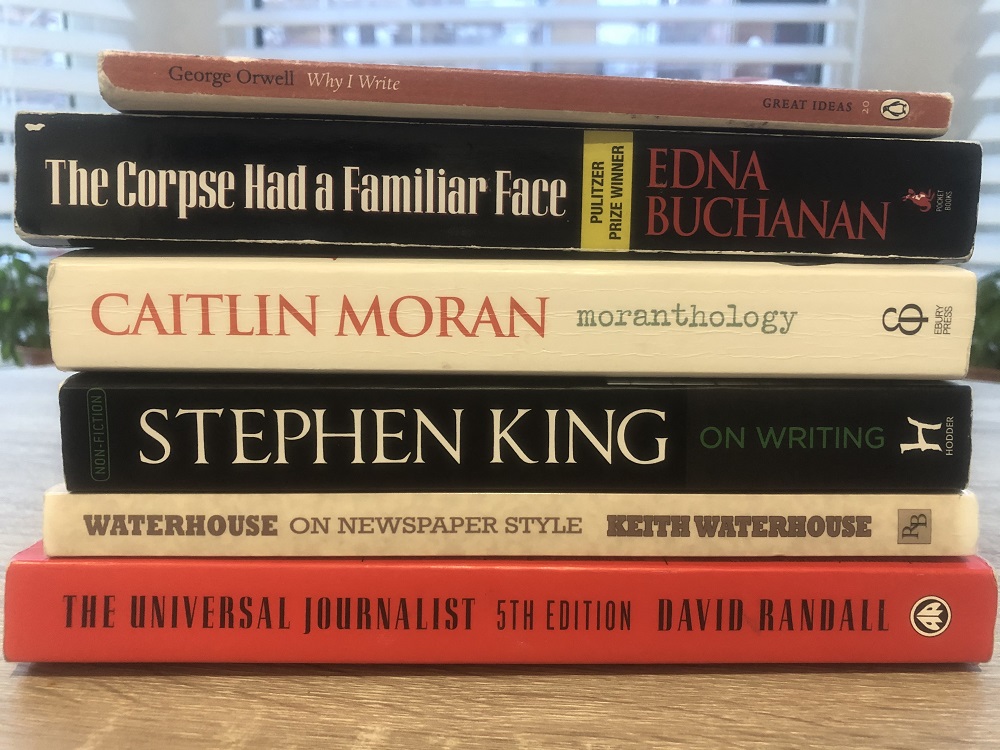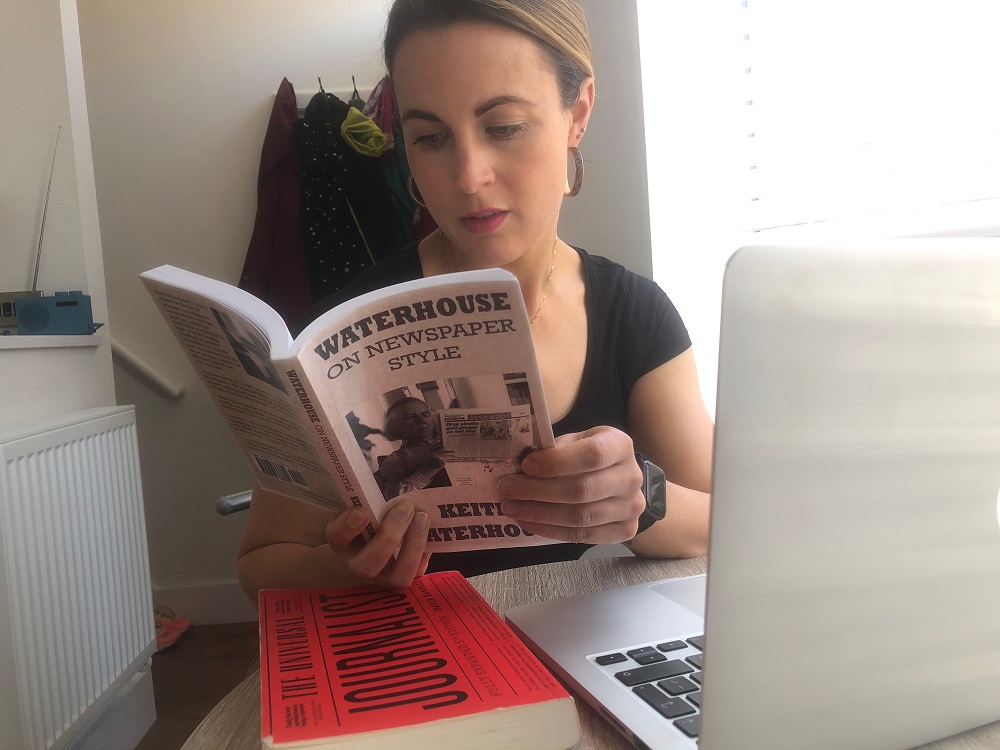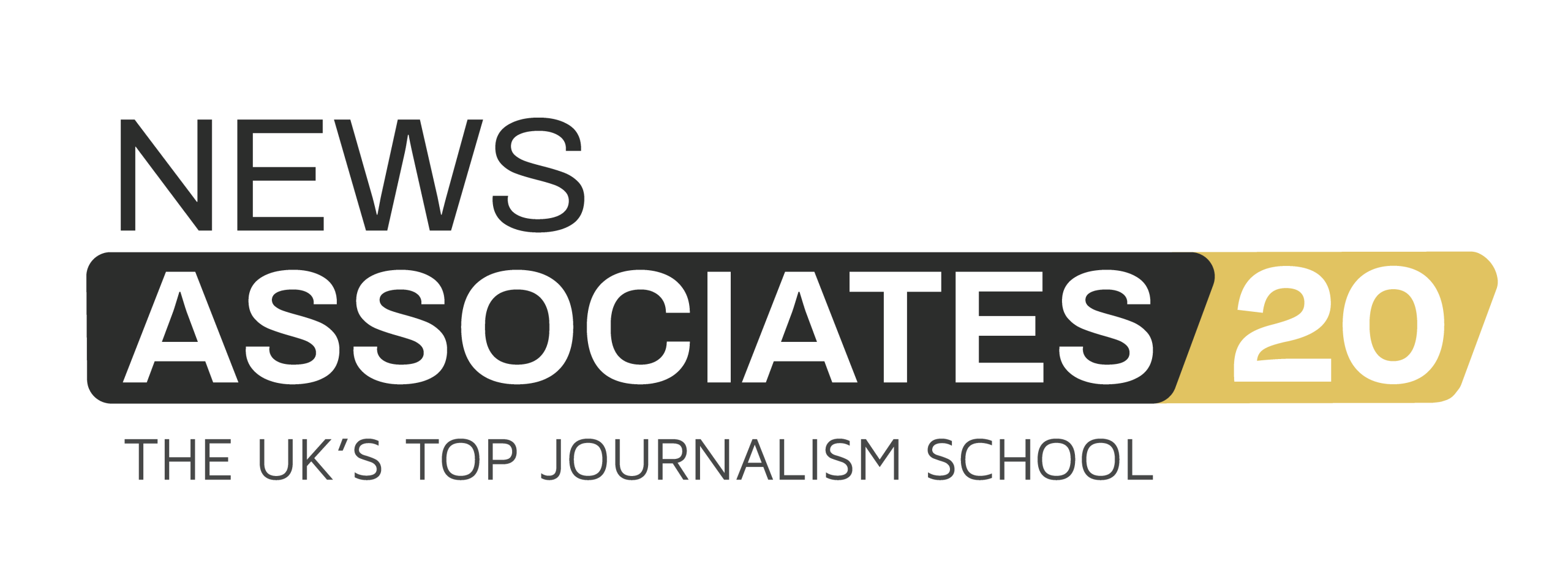Must-read books about journalism if you want to become a journalist
If you are considering becoming a journalist, or indeed, if you are in the early stages of your journalism career, then I recommend reading the following books about journalism. Believe me, they make a nice change from pouring over McNae’s and Cartwright, writes News Associates Manchester part-time trainee Gemma Corby.

Add these books about journalism to your reading list!
In the interests of impartiality, and because former library assistant’s habits die hard, these books about journalism are listed in alphabetical order (by surname):
A Short History of Nearly Everything by Bill Bryson
Bill Bryson has the rare of gift of making the inexplicable, explicable. If you can explain quantum mechanics to lay people, then you truly have journalistic superpowers. Bryson is also incredibly funny – everything he writes is a joy to read.
The son of Bill Bryson Sr, a former sports reporter for the Des Moines Register, Bryson Jr’s first job in journalism was working for the Bournemouth Evening Echo. He went on to become chief copy editor of the business section for The Times, and deputy national news editor of the business pages of The Independent.
Read anything by Bryson. Then quote him at parties to sound both knowledgeable and witty.
The Corpse Had A Familiar Face by Edna Buchanan
Buchanan writes with a wit so sharp it should come with a health warning. Her writing is pacey, straight to the point and thoroughly engaging. The Corpse Had A Familiar Face chronicles her life as a journalist – from humble beginnings in New Jersey to becoming a Pulitzer Prize winning writer, working for the Miami Herald. Her determination to get the story, however gruesome, and to tell the truth is inspiring.
On Writing by Stephen King
This book is written for aspiring writers, rather than journalists per se, but it contains valuable advice as well as a fascinating insight into the life of one of the world’s most successful and prolific writers. The first half of the book is titled ‘C.V.’ and it tells the story of King’s early life experiences of hardship and failure, followed by astronomical success.
The second half of the book is called ‘Toolbox’, which is self-explanatory. It offers useful and practical advice for all writers, with the crux of it being read a lot and write a lot.
Moranthology by Caitlin Moran
Like Bryson, Caitlin Moran has a gift of breaking down complex issues, and making them more accessible. This book is a collection of her columns published in The Times. They span a 20-year period and cover a lot of ground – from interviews with Keith Richards, Lady Gaga and Paul McCartney, to her reflections on growing up poor and dependant on the welfare state. My favourite is Libraries: Cathedrals of our Souls, which sadly resonates even more now, than when it was originally printed in 2012.
Politics and the English Language by George Orwell
This essay, published in 1946, is included in Why I Write. In it, Orwell explains how the decline of language serves political and economic causes. Vague language, hackneyed phrases, the passive voice (as opposed to the active), pretentious words and euphemism are, in his opinion, used to deliberately circumvent what the speaker or writer is truly wanting to say. As Orwell puts it: “The great enemy of clear language is insincerity.”
Orwell advises that writers be constantly on their guard against ready-made phrases, stale metaphors, similes and idioms. He says: “When one watches some tired hack on the platform mechanically repeating the familiar phrases…one often has the curious feeling that one is not watching a live human being but some kind of dummy.”
To avoid this, Orwell offers the following rules:
- Never use a metaphor, simile or other figure of speech which you are used to seeing in print.
- Never use a long word where a short one will do.
- If it is possible to cut a word out, always cut it out.
- Never use the passive where you can use the active.
- Never use a foreign phrase, a scientific word or a jargon word if you can think of an everyday equivalent.
- Break any of these rules sooner than say anything outright barbarous.
The Universal Journalist by David Randall
It was reading this that convinced me that I should give up my 15-year teaching career and pursue my dream of becoming a journalist. It is a comprehensive guide to journalism and good reporting, divided into 19 sections, including: sourcing good stories, handling sources, questioning, statistics, ethics, writing introductions and handling quotes – among many other things. It is written in clear, jargon-free language – I am sure Orwell would approve.
Waterhouse on Newspaper Style by Keith Waterhouse

Waterhouse on Newspaper Style is still recognised as the standard manual of tabloid journalism, despite being first published in 1989. It is an A-Z guide of dos and don’ts, illustrated by Trog (aka cartoonist Wally Fawkes). It includes a handy glossary of terms for non-journalists – which is useful when you are starting out.
It contains lots of helpful advice, including this, which I am considering having printed onto t-shirts and sent to every member of the Kardashian family: “Whether in metaphor, simile or any other form, literally should be boycotted. If a man literally died laughing it would be front-page news. But literally would be superfluous. Everything that happens, happens literally. If it doesn’t, then it literally didn’t happen.”
Enjoy reading these books about journalism and let us know if you have any recommendations!
You might also like:
Looking after your mental health during the COVID-19 crisis
Zoom, Zoom, Zoom! News Associates staff and trainees make most of online learning


